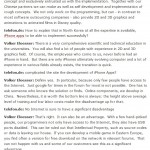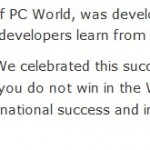According to China Economic Review:
Could North Korea be saved by Chinese-style reforms? In return for its continued support, China is pushing the rogue state to liberalise its economy, and Chinese firms are making inroads into various sectors, especially infrastructure and mining. Earlier this week, I interviewed Felix Abt, a Swiss business consultant who was appointed managing director of a pharmaceutical joint venture in Pyongyang with a brief to turn around the loss-making company, about his experiences over the last eight years.
How open is North Korea to foreign investment, and how many foreign companies are operating on the ground?
In 1992 the Supreme People’s Assembly adopted three laws allowing and regulating foreign investment — the Foreign Investment Law, the Foreign Enterprise Law, and the Joint Venture Law.
Since then, foreign investors have become active in a variety of industrial and service industries. There are a few hundred foreign-invested companies operating at present, mainly smaller sized ventures ($100,000 to $3 million) and of Asian origin (with China ranking No.1).
There are a few very large foreign investments, mainly in the telecom and cement industries. Western multinationals have been shying away from North Korea for fear of ending up on a sanctions list in the world’s largest economy. BAT sold its highly profitable tobacco factory due to political pressure in Great Britain to a Singaporean company a few years ago.
What sort of person sets up business in North Korea? What sort of industries have arrived and what sectors are not represented?
The domestic market is still very small and limited and and not much growth can be expected in the foreseeable future. So to talk about a promising emerging market at present would be a silly exaggeration.
However, North Korea is a very interesting location for the processing of products from garments to shoes to bags where you send the cloth or the leather and the accessories and they send you the finished products back.
The same goes for the extraction of minerals and metals, abundantly available in North Korea, in which case you would send equipment and get the mining products.
In addition, the manufacturing of low to medium technology items is very competitive and such products are already being made with foreign investment in North Korea from artificial flowers to furniture to artificial teeth. I was involved in making the business plan for the artificial teeth joint venture and know therefore that such products can be manufactured with a much better profit margin than for example in the Philippines where the artificial teeth had been produced before.
A particularly promising industry is IT due to the extraordinary quantity and quality of mathematicians unmatched by other countries. The first and only software JV, Nosotek, has seen remarkable successes within a very short time from its foundation and could become a subject of interest to investors who would never have thought of putting any money in North Korea until now.
How easy is it to do business there? Are most foreigners concentrated in Pyongyang or are they spread around?
It depends on the expectations, on the choice of the local partner and on the expatriate staff a company sends there. You need to thorougly select the most suitable local partner and an expatriate manager that is not only professionally competent but also can adapt to and cope with a demanding business environment.
The success of the pharmaceutical joint venture I was running in the past depended on a fast capacity building of the Korean members of the board of directors, managers and staff. I brought them to China where they visited the first foreign and Chinese invested pharmaceutical JV and I convinced its Chinese octogenarian architect to become a member of our company’s board of directors.
Since he faced very similar problems decades earlier he could convince the North Koreans quite easily why certain things had to be done in a certain way to make the business successful. We visited a great number of pharmaceutical companies, wholesalers, pharmacy chains in China and some of our staff even worked in a Chinese factory for some time.
When I wanted to set up the marketing and sales function I was first told that “companies in the DPRK usually don’t have a sales dept.”. I was asked to send a letter to the cabinet to explain my reasons to get the permit for doing so. The visits in China were surely important eye openers and helped getting things organised like in any other country.
The Korean managers and staff quickly acquired all the necessary skills and were able to run the day to day business (factory, import and wholesale of pharmaceuticals, pharmacies) alone when my term ended as managing director.
Many foreign business people are based in Pyongyang, but there are also many working in different places throughout the country, e.g. near mines in the mountains.
Hu Jintao has urged North Korea to speed up its economic reform, using China as a model. Could North Korea open up in the same way over the next few years?
The Chinese are better informed than the scholar and North Korea expert who recently wrote in the Wall Street Journal that the country’s elite would never agree to reform its economy as they fear the system would then collapse.
Together with the Chinese, I believe the risk of a collapse is much bigger if no reforms are carried out than if there are slow and controlled changes.
Once the economy starts taking off and people’s living standards rise the people will hardly challenge the system and the leadership even though the North Korean people know that South Korea’s economy is much more advanced.
Read the full story here:
Can North Korea embrace Chinese-style reforms?
China Economic Review
Malcolm Moore
9/23/2010


